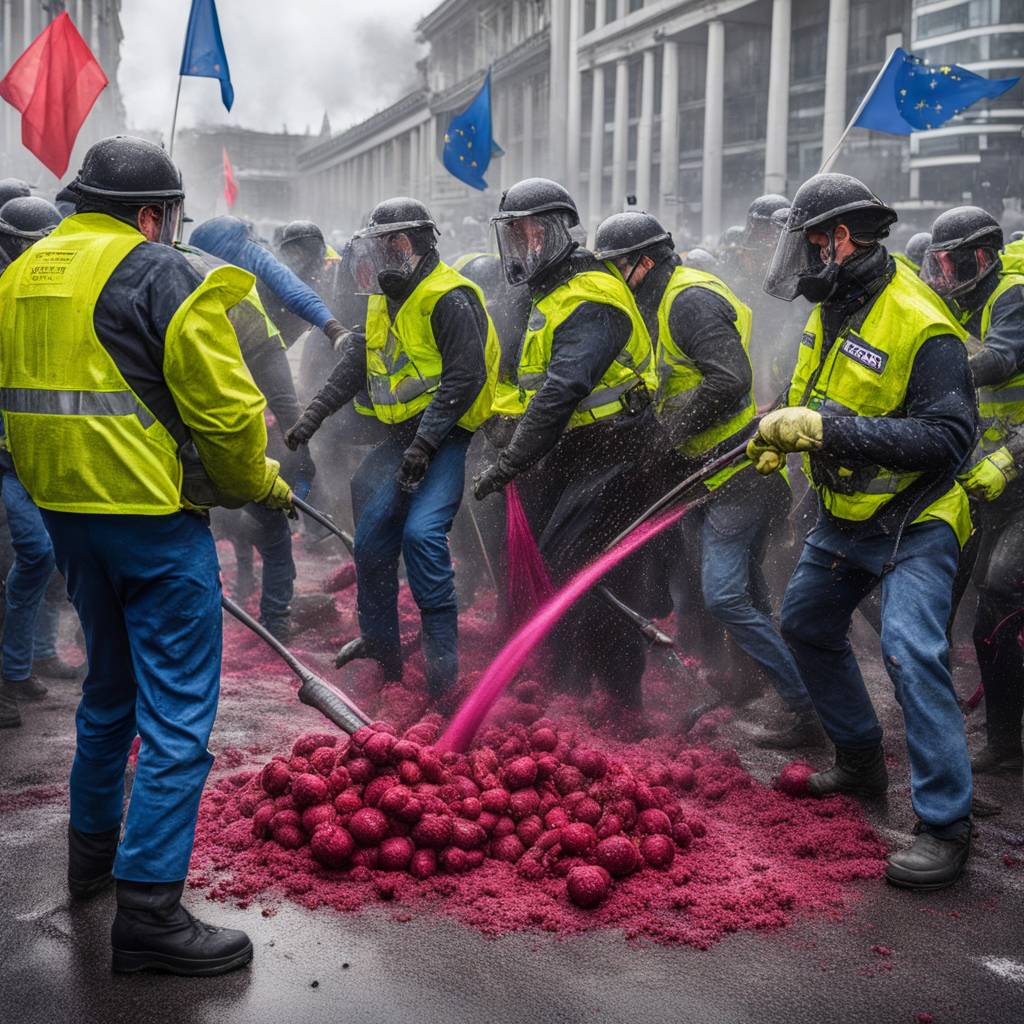Farmers across the European Union have been protesting against what they perceive as excessive red tape, unfair trading practices, and increased environmental regulations, as well as cheap imports from Ukraine. These protests have led to disturbances as farmers throw beets, spray manure, and block streets with their tractors near the EU headquarters in Brussels. The agriculture ministers have been meeting to address the crisis and have made concessions to the farmers, such as loosening controls on farms and weakening pesticide and environmental rules.
The protests have had a significant impact on EU politics, leading to the indefinite postponement of a major plan to protect nature and fight climate change across the bloc. Farmers have been successful in influencing policy decisions, with member states giving their provisional approval to proposals that weaken or cut rules in areas like crop rotation, soil cover protection, and tillage methods. Small farmers, who make up about two-thirds of the agricultural workforce and are the most active in the protest movement, will be exempt from some controls and penalties.
Despite farmers winning concessions from EU and national authorities, environmentalists and climate activists are concerned about the impact of these changes on the environment in the long term. They argue that the short-term gains for farmers could have negative consequences when climate change intensifies. The EU parliament is expected to make decisions on these proposals in late April, following the protests that have influenced policy making in the bloc.
The political landscape in the EU has shifted towards the right in recent years, with the plight of farmers becoming a focal point for populists and conservatives who criticize EU climate and farm policies as bureaucratic and out of touch with the needs of agricultural workers. Farmers have called for agriculture to be a priority in EU policy making, arguing that they face excessive administrative tasks and environmental restrictions. The protests and farmers’ demands have put pressure on politicians to prioritize the needs of the agricultural sector.
The protests have spread from Finland to Greece, Poland, and Ireland, with farmers demanding changes to regulations and policies that they believe are hindering their ability to make a living from their profession. The violent clashes between farmers and police, as well as the disruption caused by tractors blocking streets in Brussels, have brought attention to the challenges faced by farmers across the EU. The ongoing protests and negotiations between farmers and authorities highlight the need for policymakers to find a balance between supporting the agricultural sector and protecting the environment for future generations.













